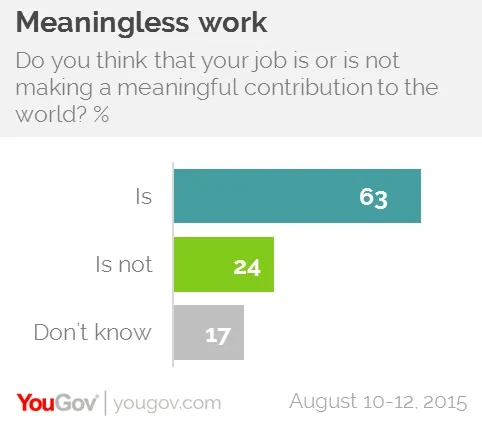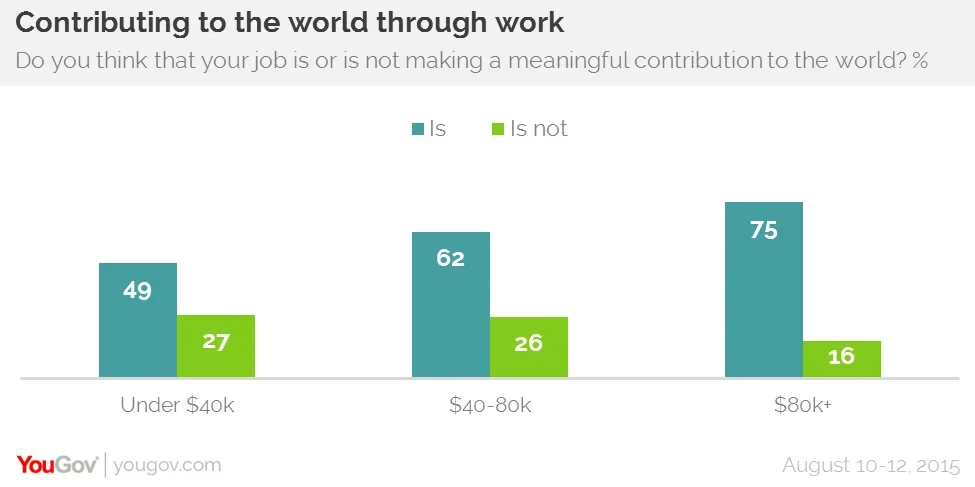24% of American workers say that their job does not make a meaningful contribution to the world

Decades ago predictions of the inexorable shortening of the working week were commonplace, with Keynes predicting a 15-hour workweek by 2030 as a result of the growing efficiency of industrial production. Industry is more efficient than ever, but the growth of the service industry has seen the loss of millions of jobs in factories and the creation of millions of jobs in offices.
YouGov's latest research shows that a significant minority of American workers believe that their efforts are not making a meaningful contribution to the world. While 63% of Americans believe that their job has meaning, 24% say that it is not.
American workers are happier than their British comrades when it comes to the meaning of their work. In the UK 37% of British workers say that their job is meaningless, while only 50% believe that their work makes a meaningful contribution to the world. Unlike in Britain, men (23%) are slightly less likely than women (26%) to say that their job is meaningless.
Only 27% of American workers find their job 'very fulfilling', and 7% say their job is 'not at all fulfilling'. 86% of workers who say that they make a meaningful contribution through their job also say that their work is personally fulfilling, compared to only 26% of people who find their job meaningless.
In the United States people with higher incomes are more likely than people with lower incomes to believe that they are making contribution to the world. While only 49% of working Americans with household incomes uncer $40,000 a year believe that their work is meaningful, 75% of those with incomes over $80,000 a year view their work as meaningful.

Though certain writers may lament the rise of service indsutry work, YouGov research from 2014 shows that a large majority of Americans would rather work in a cubicle than on an assembly line.
Full poll results can be found here and topline results and margin of error here.









